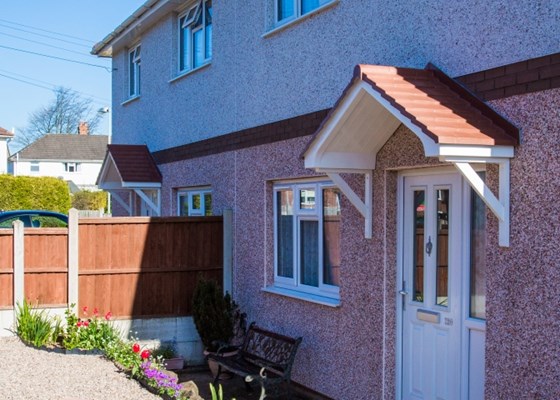Pay your rent online, see latest statements, book and view repairs through the Tenant Portal.
Housing Benefit
Housing Benefit gives help with the payment of rent to a private landlord, housing association or to us if we are your landlord. It cannot help with mortgage repayments or rent payable on business premises.
How can I claim Housing Benefit?
Housing costs are normally paid as part of Universal Credit but you may be able claim Housing Benefit if:
- you and your partner have reached State Pension age
- you are living in supported or temporary accommodation.
If you are unsure whether you should claim the Universal Credit (Housing Element) (external link) or Housing Benefit contact us straight away for advice. A delay could result in loss of benefit.
How much Housing Benefit will I get?
To work out how much your Housing Benefit will be we look at:
- housing costs
- income
- needs
- and non-dependants who live with you and may be able to help with costs.
The most amount of Housing Benefit you can get is the same as you 'eligible rent' which may not be the same as your full rent.
Housing costs
Housing Benefit does not cover housing costs such as costs for fuel, cooking, lighting, laundry facilities, meals and water rates.
Income
If you do not receive Income Support, income based Jobseeker's Allowance or (Guaranteed) Pension Credit we have to compare the money you have coming in (your income) to your needs.
Your income will include an assumed income from any capital you have over £6,000 (£10,000 if you or your partner are pension age or over).
Your needs are worked out using the personal allowances and premiums for the members of your family who live with, and are dependent on you. You cannot get Housing Benefit / Council Tax Support if you (and your partner) have more than £16,000 in savings or capital.
If you are working for an employer you will need to give us 5 weeks, or 2 months of your wage slips to work out your average earnings. Earnings are worked out after allowing for Income Tax, National Insurance contributions and half of any pension contributions that you make.
All other income is taken into account on a weekly basis, including state benefits, private pensions and maintenance payments. Some types of income are ignored either in full or in part when working out how much we can pay you.
Needs
Personal Allowances are the allowances set by the government to be used when calculating benefit entitlement. They are meant to reflect how much money a person needs to live on per week. They are meant to reflect how much money a person needs to live on per week. They vary depending on the circumstances of the person claiming and the size and circumstances of their family if they have one.
Non-dependents
You may get less benefit because of people living with you. These could be:
- children who have left school
- relatives
- friends.
These people are called non-dependants. If they are over 18, the Government expects them to pay a share of your housing costs. It lays down set amounts, which we must take off your benefit. This deduction is based on the non-dependants' gross weekly income (pay before stoppages plus any other income including benefits). You must let us know if there are any non-dependants living with you.
How will I be paid?
You will be paid every 4 weeks in arrears (paid after 4 weeks, not in advance). Payments are usually made directly into a bank account but we can pay by crossed cheque if you don't have a bank account.
Housing Association tenants
Housing Benefit payments for Housing Association tenants can be paid direct to your landlord.
Private tenants
For private tenants, by law, we must pay this to the tenant.
If you are unable to manage your rent payments (for example, because you have a learning disability, have language problems, are ill, are in a lot of debt or are addicted to drugs, alcohol or gambling). The tenant can then ask us to pay their Housing Benefit directly to their landlord. Your landlord can also ask to be paid direct without your permission if you are 8 weeks or more in arrears.
If you are a tenant of ours, your benefit will be credited to your rent account. You will need to pay any difference between your benefit and rent direct to your account.
You can check your account in the Tenant Portal:
Can I get Housing Benefit on 2 homes?
Housing Benefit is usually only paid on one home in which you live and pay rent. In some circumstances you may receive benefit for 2 homes if:
- you have moved into other rented accommodation due to fear of violence
- you are a student or trainee, and have to live in separate rented accommodation because of your course or work
- you are one of a couple, and have to live in separate rented accommodation because of your work
- you have a large family and we have housed you in 2 separate properties
- you have move to a new home which you have to pay rent for but you must still pay rent for your old home.
You can use the form in the related documents section to apply for Housing Benefit on 2 homes.
Housing Benefit for the self-employed
If you are self-employed you can still claim benefits. Just like paid employment, it is how much you earn that counts.
The starting point in the calculation is to work out the total business income for the period in question. This will include all money coming in, business start-up allowances but will not include sums of capital paid into the business.
If you have recently started trading on a self-employed basis, we will ask for an estimate of the likely income and expenses for the business over the first few months trading. This will help us to pay your benefit sooner rather than having to wait until you have been trading for a few months.
If you have been trading for more than 12 months, we will ask for a full years trading figures - normally in the way of a 'profit and loss account'. We may also ask for the most recent tax assessment form received from the Inland Revenue.
Expenses
The Benefit rules are similar to the rules operated for tax purposes. Notable differences are that we cannot deduct any sums attributed to expenses such as depreciation, business entertaining, capital repayments on loans or any sum which relates purely or partially to a private expense.
Self-employed childminders
Childminders are treated differently. Instead of working out what their actual expenses are, two thirds of their total income is disregarded. The remaining third becomes their 'business income' for Benefit purposes.
Business partnerships
If you are employed in a partnership, the pre-tax profit for the business (such as gross income, expenses) is divided equally between the number of partners. If there is a formal agreement in the partnership which governs that profit should be treated differently, then this will take priority.
Tax and National Insurance
We will calculate income tax and National Insurance deductions ourselves based on the net profit figure. These figures may differ from the figures worked out by the Inland Revenue. Half of any private pension contributions are also disregarded.
All of the above are then deducted from your net profit figure to give us the earnings amount to be used when calculating Housing and Council Tax Support.
What if my circumstances change?
You must tell us if your circumstances change.
link:Report Housing Benefit changes
Contact us about benefits
You can contact us about housing benefit by:
- telephone: 01623 457400



